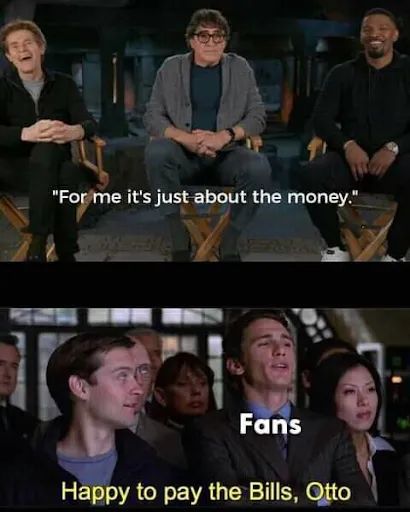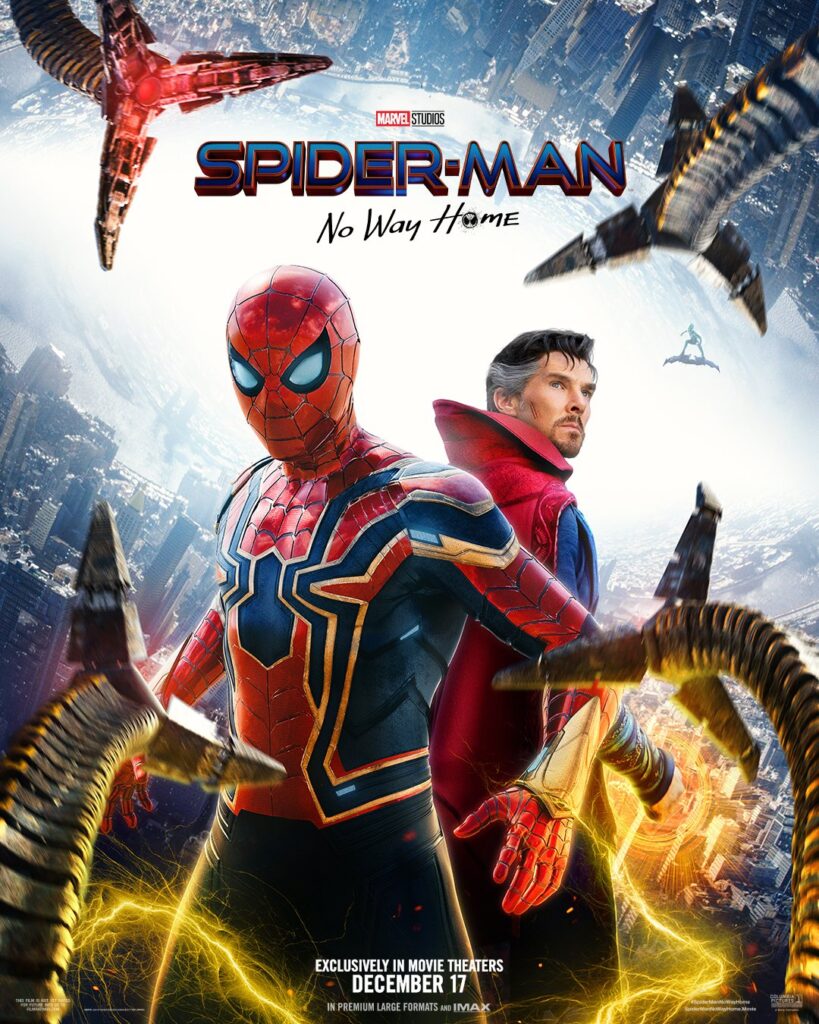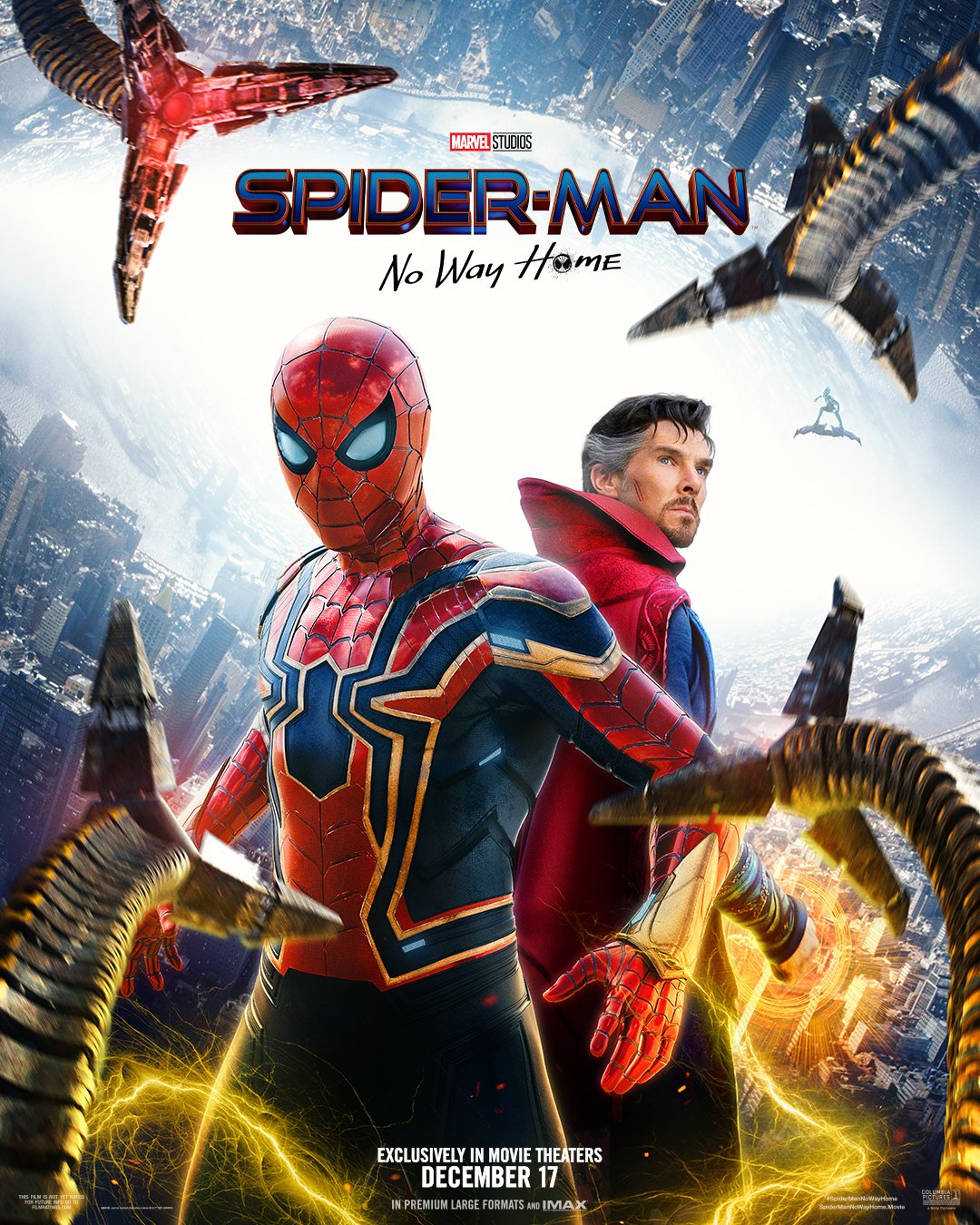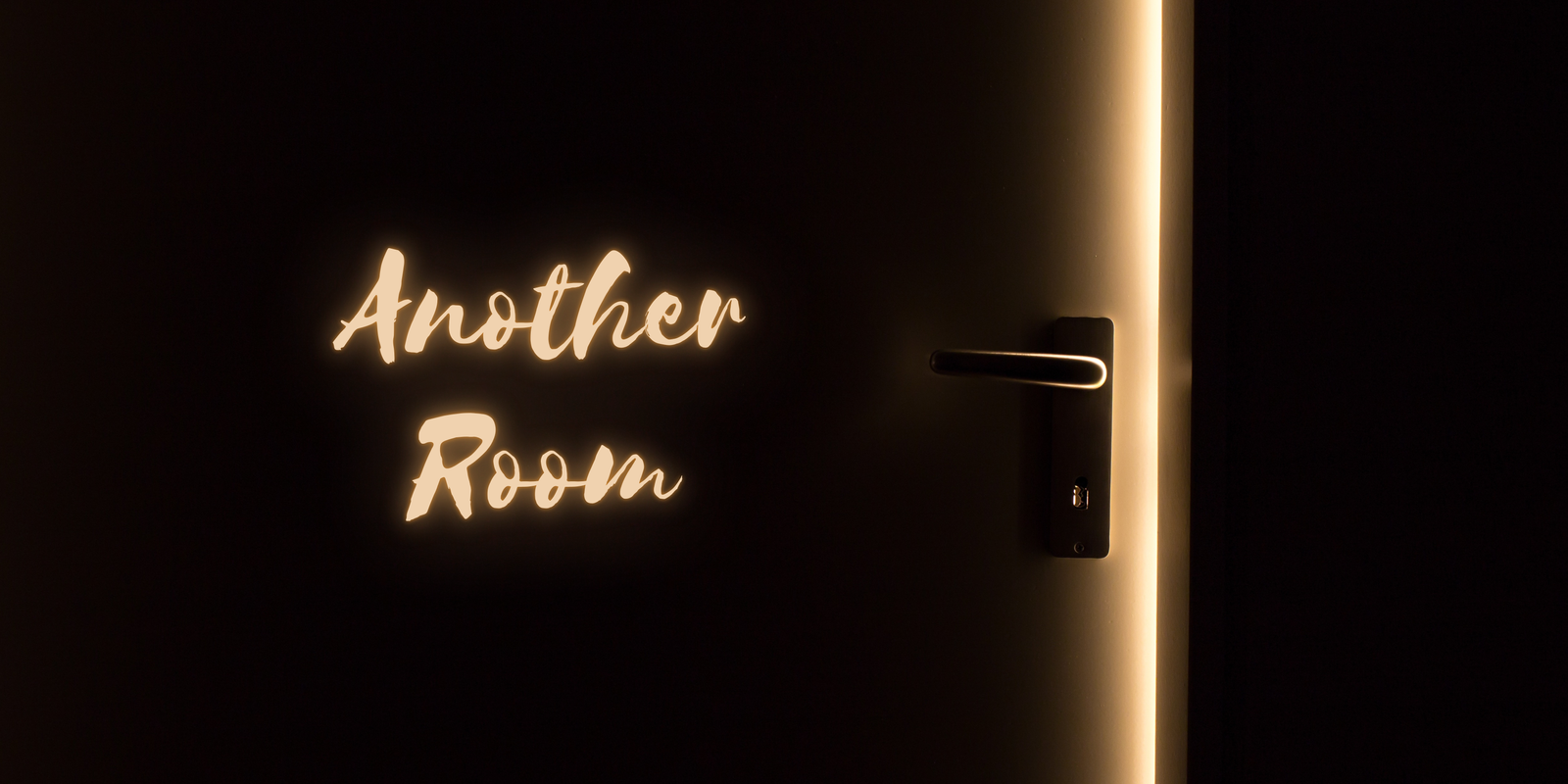Sure, opening weekend is over, and swarms of people have already seen it, but due to recent COVID precautions in my province, I’m sure there are plenty of fans here and elsewhere who have yet to see it. So I’m determined to keep this blog post as spoiler-free as possible. I’ll be vague where necessary. And if you feel safer waiting until this film is available to watch at home, that’s totally valid. But I will say that this is one movie that I am glad I saw on the big screen.
Let’s get this out of the way first. If you’ve seen my Instagram stories lately, you may have noticed my reason for wanting to see No Way Home: Alfred Molina as Doctor Octopus. He has always been, and will continue to be my all-time favourite when it comes to Spider-Man. Although I had always planned on watching this movie, I only got excited about it when I heard that Alfred Molina would be bringing this villain back to life on the big screen. And you bet I loved every second of every scene he was in. That being said, I got the feeling that Otto Octavius got pushed to the backburner for the second half of the film. He was such an important character in the first half of the film, but after a certain turning point, he wasn’t all that important to the plot anymore. All of the other villains in the film were dealt with consistently in terms of character development and on-screen presence, but I didn’t get that with Doc Ock. In later scenes it felt like he was just tossed in so that we wouldn’t forget he was still there. Maybe my admiration of Alfred Molina makes me biased, but I think Otto deserved better in the second half of the film.

I’ve heard some people are comparing No Way Home to Avengers: Endgame (2019) because of the way it brings together all three Spider-Man film series into this one epic adventure. Personally, I think a more accurate comparison would be Spider-Man: Into the Spider-Verse (2018) – for obvious reasons. Not only that, but there were references to Mile Morales among the many other Spider-Man-related references peppered throughout the movie. But beyond the obvious, the tone and many of the thematic elements were similar between the two films. Particularly, the thing that makes Spider-Man who he is remains the same across dimensions. The similarity within the various backstories is brought up in Into the Spider-Verse and carried into No Way Home.
Apart from the themes carried over from Into the Spider-Verse, this film was filled to the brim with other recurring themes. At times, it felt as if every second line of dialogue tied to the ideas of “be careful what you wish for”, “actions have consequences”, and the classic “with great power comes great responsibility.” But despite the heavy handed use of these themes, I don’t think this had a negative impact on the story. I’ve heard many writers talk about how the stories that make up the movies and shows of the MCU are very formulaic. The follow the classic story arcs, hit all the right points, and that’s why they’re popular. And that’s not necessarily a bad thing. As a movie-goer, you know roughly what you’re going to get, and you have a good idea what kind of emotional and/or spiritual journey the main character will go through. By returning back to the main themes of the movie, that helps to keep the story within the confines of the formula – and thus creates a perfectly popular cinematic experience. This is something the masses will love, and I did love it.
But there was more to love about this film than just the classic story arc. Any film that features both Spider-Man (Tom Holland) and Dr. Strange (Benedict Cumberbatch) is going to have a lot going on visually. I’ll be honest, between Spider-Man’s high-flying trapeze work between the buildings of NYC and Dr. Strange’s reality bending magic, I was a little worried that motion sickness would be lurking around the corner. Thankfully, that did not happen. Not even in that spectacular scene that featured the two of them doing what they do best. For a project like this, the filming, editing, CGI, etc. all need to be spectacularly put together in order for everything to look it’s best. There was only one brief moment where a shot of Spider-Man looked too CG and broke my willing suspension of disbelief. Other than that, I was in awe of the level of filmmaking that was displayed on screen.
What really stole the show for me, however (other than Doctor Octopus), was the presentation of the various relationships. I appreciated that the romantic relationships were meaningful and significant, yet did not take focus away from the rest of the film. And the friendships were based on love and support. But the most important aspect of this film for me were the way male relationships were presented. This movie presents a perfect example of non-toxic masculinity. It would have been so easy to fall back into that tired, old cliché of having an alpha male leading the heroes, but that was not the case at all. At no point were any of the good guys trying to one up each other in order to win the affection of the girl, prove their the best, and/or whatever bullshit macho stuff you can think of. Instead, there was unconditional support between the male heroes of the film. Well, maybe Strange’s support had some conditions, but given that his spells can mess with reality, I think that’s more than fair.

There’s one more thing that makes this movie absolutely perfect, and that’s the nostalgia. Millennials and Xennials are characterized by their nostalgia. Our generations were coming of age during the shift when technology and the internet rapidly changed the course of our lives. As a result, some have reported that we tend to be more nostalgic than other generations. I was about 11 when Spider-Man (2002) came to theatres. Back then, we really didn’t have many superhero films; especially compared to now. And I wasn’t even all that interested in superheroes back then. But I loved Spider-Man cartoons on tv, and I loved the original trilogy. I’ve watched all three films more than once (yes, even the third one). It wasn’t until Iron Man (2008) that I really started to care about comic book movies.
Regardless, whether you were interested in superhero movies or not, Spider-Man was one of the few we had back then. And I’d hazard a guess that a lot of us watching the current Spider-Man trilogy are familiar with the first trilogy, as well as the two The Amazing Spider-Man movies (it bugs me so much that these didn’t turn into a trilogy too). So, just like I was most interested to see Doc Ock in this film, I’m sure there were others out there who were coming to the theatre in the hopes of seeing actors and characters from the Spider-Man films that came before this one. Don’t get me wrong, Tom Holland has earned the love of the fans, but the theatre erupted into cheers when certain actors appeared on screen, reprising the roles from previous films. I myself grabbed Mark’s arm and shook him when certain actors/characters showed up because I was so excited.
Even though the nostalgia factor is the selling point of this film, it doesn’t need to rely on it. Enough was done well with this latest addition to the MCU that everything still would have worked even without the return of fan favourites. This is one that I would watch again, and not just for Alfred Molina. Plus, it leaves me wondering, what’s next for our friendly neighbourhood Spider-Man?



